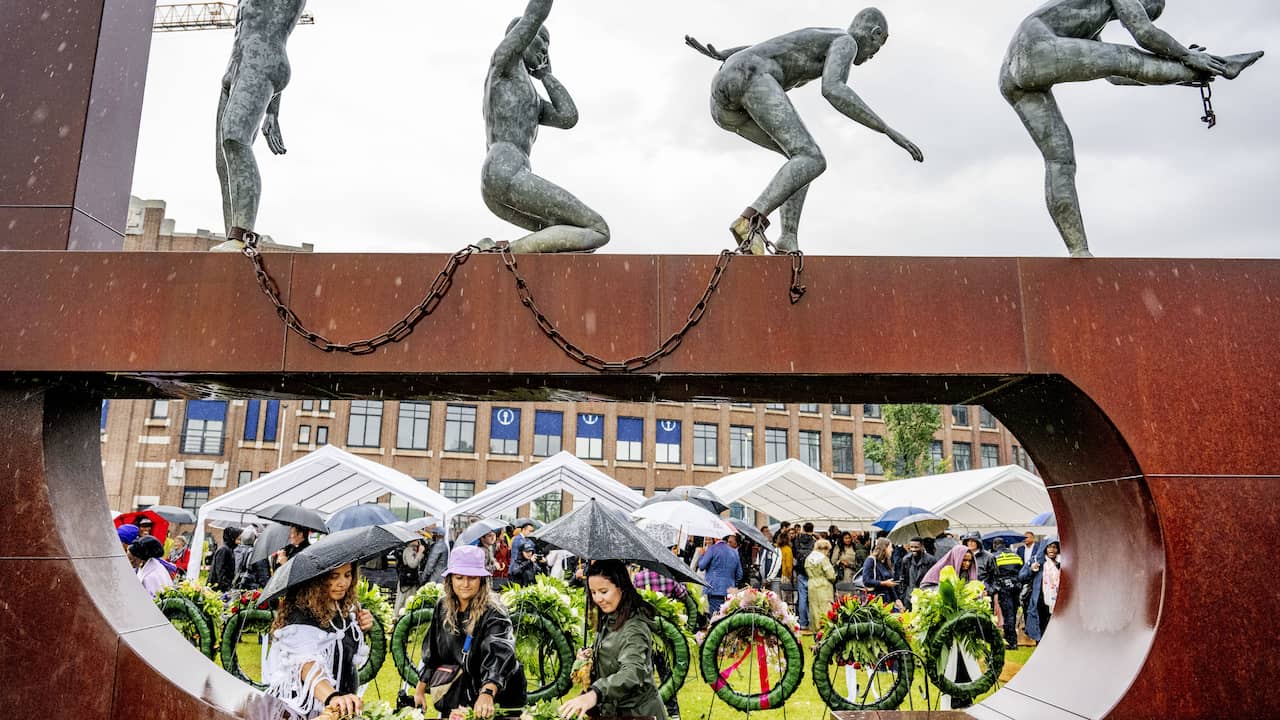The words that King Willem-Alexander dedicated in his Christmas address to the past of Dutch slavery, the upcoming year of commemoration and the apology that the government offered were well received by various interest groups.
In his Christmas speech, the King followed up on an apology Prime Minister Mark Rutte offered on behalf of the government on Monday. “For what inhumane acts were then done in the lives of men, women and children, no one is now to blame,” the king said. “But by honestly addressing our shared past and acknowledging the crime against humanity that was slavery, we are laying the foundation for a shared future.”
Linda Nooitmeer of the National Institute of the Dutch Slavery Past and Legacy (NiNsee) was impressed by the speech. “She has yet to land,” she said shortly thereafter. “I thought it was a very nice message. The king referred to the apology, the crime against humanity and the descendants of people who were living in slavery.”
Rabin Baldewsingh, the national coordinator against discrimination and racism, found the king’s words moving: “That’s what it’s all about at the end. It was really a very engaging speech.” For example, Baldewsingh mentions how the king used the impact of slavery’s past “to invite people to join and participate”.
“We shared past and future”
According to the National Coordinator, it is “very great” that the king underlines the apology that Rutte had previously expressed with his words: “I think an important basis has been laid for reconciliation towards the year of commemoration”.
Dagmar Oudshoorn, chair of the former Advisory Board Dialogue Group Slavery Past and director of Amnesty International Netherlands, also speaks of beautiful and connecting words. “I think the speech is very important for the descendants of enslaved people.” According to her, the king’s words mainly reflected what the advisory body said in its “Shackles of the Past” report. “We have a shared past and we must also move towards a shared future.”
This is also the opinion of Kathleen Ferrier, president of the Unesco Netherlands commission. “They were promising words for the interpretation of what comes after the comma. It is important that you mention the words ‘crime against humanity’ and that you speak of reconciliation”.
Next year, from July 1, 2023 to July 1, 2024, the commemoration year of past slavery. Particular attention will be paid to this throughout the kingdom. The King will be present when the end of slavery in 1873 is commemorated in Amsterdam on 1 July.
 1:09
1:09

